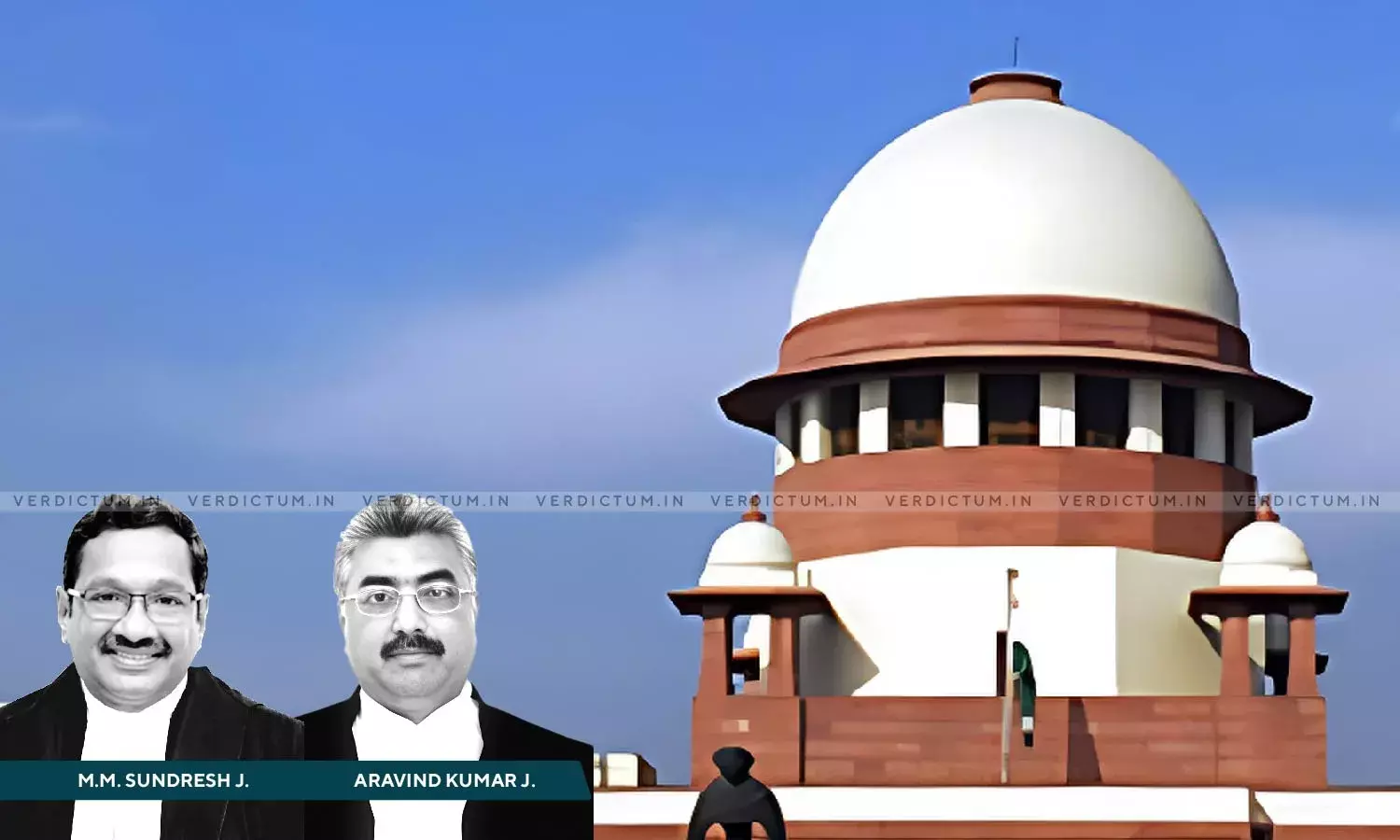'Detenu Was Well Aware Of His Right To Make A Representation': SC Upholds Detention Order In Smuggling Case

The Supreme Court dismissed an appeal challenging the validity of a detention order passed against an accused under the Conservation of Foreign Exchange and Prevention of Smuggling Activities Act, 1974 (COFEPOSA Act).
The detenue was arrested upon discovery of a substantial amount of gold and various foreign currencies and a detention order was issued under the COFEPOSA Act)
A Division Bench of Justice M. M. Sundresh and Justice Aravind Kumar observed that “In a case where a detenue is not in a position to understand the language, a mere verbal explanation would not suffice. Similarly, where a detenue consciously declines to receive the grounds of detention, he has to be informed about his right to make a representation. In such a scenario, the question as to whether the grounds of detention contained a statement that a detenue has got a right to make a representation to named authorities or not, pales into insignificance.”
AOR M/S. Law Offices of Ahmadi represented the appellant while A.S.G. K.M. Nataraj appeared for the respondents.
The detenue was arrested and efforts were made to serve the grounds of detention with translation in Bengali language which he initially refused. Despite this, a facility was extended to him to read the documents in its entirety. A panchnama was signed by two independent witnesses and the detenue who signed the panchnama in the English language. After refusing to receive the same on the second occasion, he finally received the grounds.
The detenue, through his brother-in-law filed a writ petition contending that he was not served the grounds of detention, even though the grounds were received by him on the second try. The Calcutta High Court dismissed this writ petition stating that the detenue had refused to accept the grounds, as evidenced by a panchnama.
In appeal before the Apex Court, it was argued that detenue was not properly informed of his right to make a representation against the detention order and that not all relevant materials, such as telephonic conversations, were provided to the detenue.
The Supreme Court noted “the knowledge of the detenue is to the subjective satisfaction of a detaining authority discernible from the grounds supplied to him. It is only thereafter that a detenue could be in a better position to take a decision as to whether he should challenge the detention order in the manner known to law. This includes his decision to make a representation to various authorities including the detaining officer.”
The Supreme Court discussed the importance of effectively communicating the grounds of detention to the detenue in a language he understands and informing him of his right to make a representation. The Court rejected the appellant's arguments, stating that the detenue was well aware of his rights, as evidenced by the panchnama.
The Court found no ground for interfering with the impugned order passed by the High Court of Calcutta.
The Supreme Court dismissed the appeal.
Cause Title: Sarfaraz Alam v. Union of India & Ors. (Neutral Citation: 2024 INSC 18)
Appearance:
Appellant: AOR M/S. Law Offices of Ahmadi, Advocates Shariq Ahmed, Talha Abdul Rahman, Tariq Ahmed, Ismail Zabiulla, and Akshay Sahay
Respondents: A.S.G. K.M. Nataraj, AOR Mukesh Kumar Maroria, Advocates Vanshaja Shukla, Rajat Nair, Shailesh Madiyal, Vatsal Joshi, Anuj Srinivas Udupa, Padmesh Mishra, and Yogya Rajpurohit

